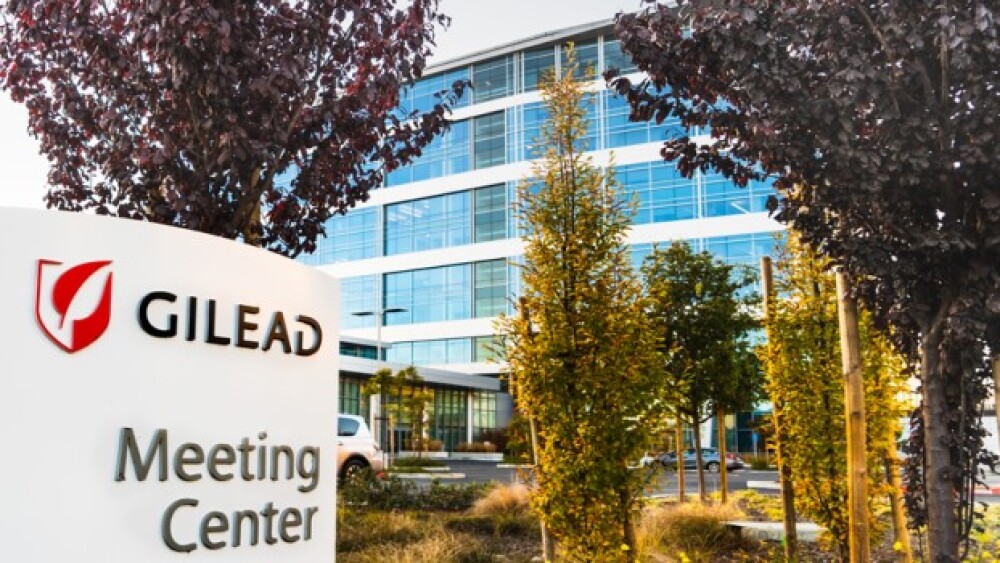Thursday, Gilead Sciences reported lower second-quarter profit due to a drop in sales of the company’s Veklury antiviral and a $525 million legal settlement, while slightly raising its sales outlook for the year.
Pictured: Gilead in Silicon Valley/iStock, Sundry Photography
Gilead Sciences posted strong second-quarter sales for its base business on Thursday, while reporting lower profit due to a drop in sales of the company’s Veklury antiviral and a $525 million legal settlement.
Like its fellow biopharma companies, Gilead’s COVID-related sales tanked in the second quarter, offsetting some of the success of its other assets. Total product sales of $6.3 billion, excluding Veklury (remdesivir), were up 11% year-over-year driven by virology and oncology. Total sales including the antiviral came in at $6.6 billion, a 7% increase.
Veklury sales dropped 43% to $256 million for the quarter, well below analysts’ estimate of $354 million. The company pointed to lower hospitalization rates for COVID-19 patients. Hospitalization numbers this summer have dropped in the U.S. by 83% compared to July of 2022. In response, Gilead cut its Veklury forecast for this year from $2 billion to $1.7 billion.
In addition to lower-than-expected sales of its antiviral in the quarter, Gilead had a one-time HIV antitrust litigation settlement totaling $525 million.
Diluted earnings per share (EPS) decreased to $0.83 in the second quarter versus $0.91 in the same period last year “mainly driven by a $525 million litigation accrual for settlements,” which represented a $0.32 impact to diluted EPS “as well as other higher operating costs and tax expense,” according to Gilead’s press release.
Going forward, Gilead has slightly raised its full-year sales outlook to between $26.3 billion and $26.7 billion from a range of $26 billion to $26.5 billion previously. However, the company noted that its financial guidance is “subject to a number of risks and uncertainties, including uncertainty around the duration and magnitude of the COVID-19 pandemic.”
HIV remains Gilead’s strongest performing platform with $4.6 billion in product sales, up 9% compared to last year’s second quarter.
The company’s oncology portfolio saw the biggest uptick. Sales increased 38% year-over-year to bring in $728 million, with cell therapies bringing in the bulk. Yescarta and Tecartus sales ballooned 27% to $469 million.
Targeted cancer therapy Trodelvy led in growth percentage, up 63% to $260 million for the quarter. According to Gilead, the drug is the only Trop-2 directed antibody-drug conjugate on the market currently approved for certain types of breast cancer and in trials to expand indications, including bladder and non-small cell lung cancer. The treatment is positioned to “expand its reach” Chief Commercial Officer Johanna Mercier said on Thursday’s earnings call.
Gilead’s liver disease portfolio brought in $711 million, a more modest 4% growth partially offset by pricing dynamics.
The company’s pipeline currently has 64 ongoing clinical programs and 21 phase III trials.
“Overall, we believe we have a very ambitious clinical portfolio that is well diversified across indication and stage,” Gilead’s Chief Medical Officer Merdad Parsey said on the call.
Kate Goodwin is a freelance life science writer based in Des Moines, Iowa. She can be reached at kate.goodwin@biospace.com and on LinkedIn.






